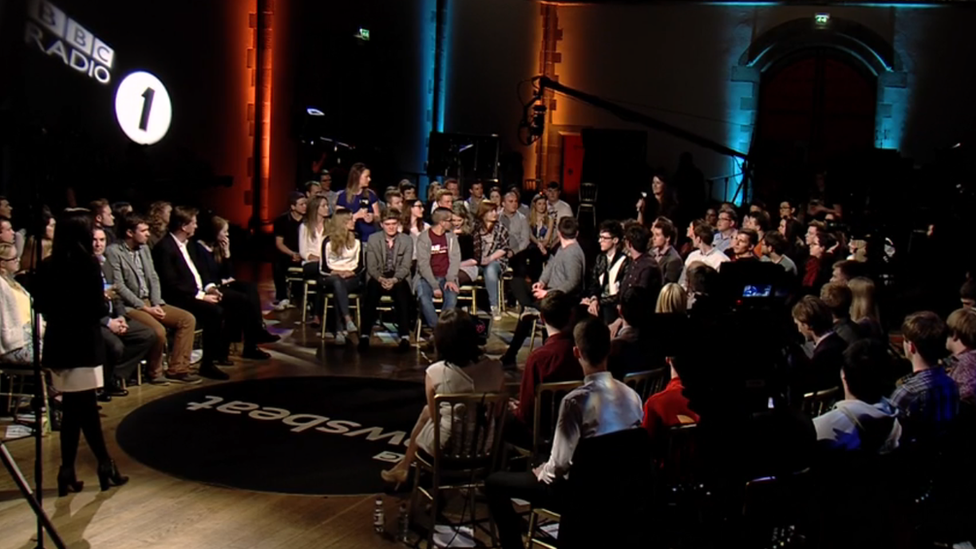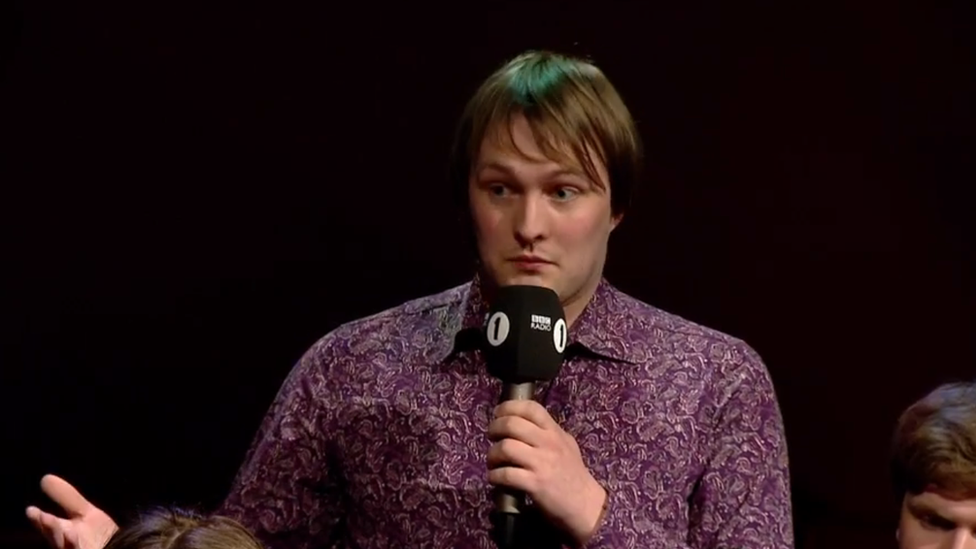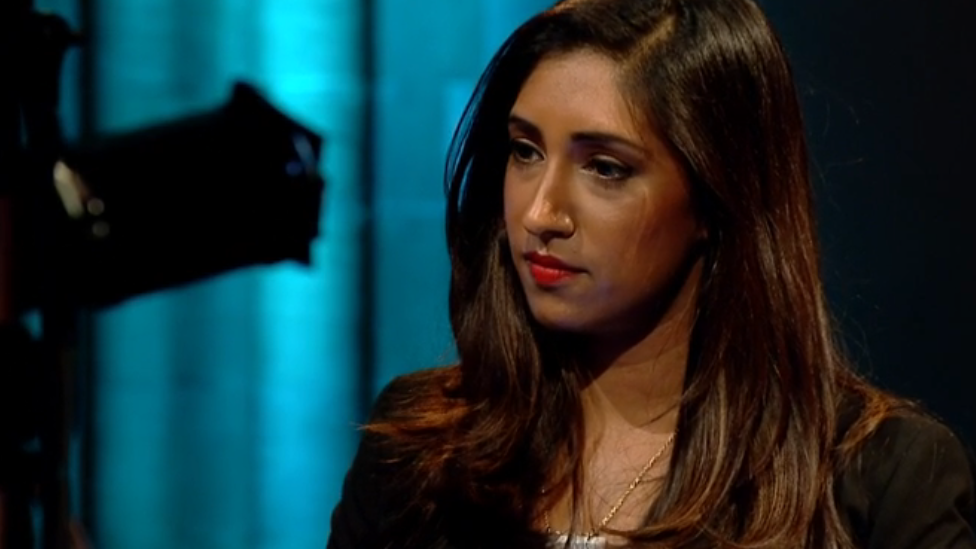Election 2015: What you told Newsbeat in Edinburgh debate
- Published

More than 100 young people took on five politicians in Newsbeat's final election debate in Edinburgh.
Housing was the biggest talking point alongside the cost of living and jobs.
Jenny Marra from Labour, Danny Alexander of the Liberal Democrats, Humza Yousaf of the SNP, Gavin Brown from the Conservatives and UKIP's Jonathan Arnott joined the debate.
It was hosted by Newsbeat presenters Tina Daheley and Chris Smith.
As it happened - live coverage from Newsbeat's debate at Edinburgh's Mansfield Traquair.
The audience was put together with the help of the BBC's Generation 2015.
BallotBots: Play the political machine in Newsbeat's election game
Housing
Danielle, 23, describes being homeless and 32 weeks pregnant
At 32 weeks pregnant, 23-year-old Danielle told the politicians, she is homeless and in temporary accommodation.
"People talk about scroungers, but I'm not asking for handouts, just somewhere to raise my child," she says.
Danny Alexander said she "should be getting more support. This is why we need more social housing.
"We [the Liberal Democrats] would invest more... so there are more homes available. No-one should have to raise their child in temporary accommodation."
"It's not acceptable," said Humza Yousaf, before going on to explain that the SNP is on target to build 30,000 affordable homes.

All five politicians agreed that building more homes was the key to solving the housing crisis.
Labour's Jenny Marra also referred to Ed Miliband's plans to bring in "a level of rent control".
Laura, 21, from Glasgow targeted her question at the Conservatives, and wanted to know why they had a right-to-buy policy.
"People aspire to own their own home," said the party's Gavin Brown.
"It opens it up to more and more people. I don't think it's right that people are denied that in Scotland [where the policy is abolished]."
UKIP's Jonathan Arnott said that if you have a right-to-buy scheme then it was crucial that the money raised was ring-fenced and used to build new homes.
Jobs
Newsbeat election debate: Social media update
"In the 21st century we have women doing the same job as men but being paid less for it," said Mr Yousaf.
He said the SNP would "urge" the government to tackle it, describing it as "completely medieval," getting him on of the biggest cheers of the night.
Rates of pay were an important discussion point on the night.
"The minimum wage for apprentice is £2.73. That's a completely unliveable wage," said Ms Marra, who said she earned £2 an hour in her first job 15 years ago.
"Labour is committed to raising minimum wage to £8.00 by 2020. I don't buy the argument that the economy will fail because [people] are paid a decent wage."

Mr Brown said that it should be up to the Low Pay Commission to set the minimum wage. "Take the politics out of it," he said.
"You might be getting people into work but it's not the kind of work that's giving them a living wage," said Isobel, of minimum wage jobs. "It's not the kind of work that people can survive on."
Mr Brown replied: "If you pushed it up to a living wage overnight, the view of the experts... is that people would be out of work."
Cost of living and energy prices
Two Newsbeat listeners discuss their views on the cost of living
"When you're working, the government should take less of your money in income tax, especially if you're working on a low income," said Mr Alexander.
"We want to raise the personal allowance further to "12,500, so that someone working full-time on the minimum wage is not paying any of their money over to the government in income tax."
"Wages are predicted to grow far faster than inflation," said Mr Brown. "In the next couple of years people will feel the pound in their pocket more."
Energy prices are a problem for some of the audience, with one student talking about having to switch of the heating, while another said insulating homes should be election priority.
Mr Arnott criticised previous governments for making sure the technology was there to support investment in new energy sources such as wind farms.
"I'm surprised UKIP didn't blame immigrants for high energy costs," said Mr Yousaf, before saying wind farms had been successful in Scotland.
Ms Marra said Ed Miliband was the only leader to have the "gumption" to propose a 50p tax rate on higher earnings.
She also said that by closing tax loopholes on big business, tax revenue could be raised to help fund more nurses, doctors and mental health care.
You can also catch up with what happened at our first debate in Leeds, where trust in politics, tuition fees, gender equality and the voting age were all discussed.
And at our second debate in Birmingham, immigration, mental health, the NHS and the EU were the subjects on the agenda.
Follow @BBCNewsbeat, external on Twitter, BBCNewsbeat, external on Instagram, Radio1Newsbeat, external on YouTube and you can now follow BBC_Newsbeat on Snapchat